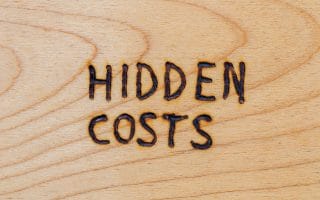
Fortunately, my friend is smart and she’s well-informed on health matters. Before she left the doctor’s office, she asked him if there was anything she could do before resorting to the drug. Could she exercise more? Eat better? Was the drug absolutely necessary right now in order to save her life, or did she have time to try other options? She asked for two reasons. First, she didn’t want to pay for a drug if she didn’t have to. Things are tight at their house and she didn’t want to spend more money unless it was absolutely necessary. Second, she knows that drugs have a lot of side effects and she didn’t want to deal with that if she could avoid it.
When she asked the doctor about options, she said he looked at her like she had two heads.
“Well, yes,” he said slowly. “There are other options. You can lose weight, eat less sodium, exercise more, and manage your stress better.”
“Okay,” she said. “Let’s talk about those things.”
She and the doctor then proceeded to have a conversation about lifestyle changes and they set up a schedule for monitoring her blood pressure. She went home and did everything he suggested. She changed her diet, ramped up the exercise, and got involved in stress management techniques like meditation and relaxation. At her six-month checkup she’d lost thirty pounds and her blood pressure was in the normal range. The doctor congratulated her and told her to keep up the good work. Because of her efforts, she could remain drug-free. As she was leaving the office, she asked the doctor why he hadn’t mentioned these natural remedies first.
“I guess I’m just jaded,” he said. “I used to tell people to lose weight, exercise, and bah, blah, blah, but no one ever followed through. Six months later their blood pressure would be unchanged or worse and we’d have to go for the drugs. So I’ve gotten to the point where I just start with the drugs.”
He told her that her efforts had inspired him to try again with the lifestyle speech.
“I’m sure a fair percentage will end up on the drugs, anyway, but maybe there are more people like you out there who will try what I tell them,” he said.
The lesson of this story is to always ask if there is a way to avoid a drug that a doctor is prescribing for you. Obviously if it means life or death, take the drug. But if there are lifestyle changes you can make, you may be able to avoid the drugs altogether by losing weight or exercising. Even chronic pain might be manageable through physical therapy, specific exercises, or relaxation techniques. We’re learning more and more every day about holistic and natural ways to manage many conditions. There may be other options for your problem.
While my friend’s doctor was simply jaded from years of negative experiences, you may also encounter doctors who reach for the prescription pad because they are getting kickbacks from the drug company. While you can argue the ethics of such practices, the sad fact is that pharmaceutical companies offer incentives to doctors who prescribe their drugs. You’d like to hope that your doctor is immune to this pressure and only acts in your best interests, but he or she might not.
Always ask about other options and treatments before you agree to take a prescription drug and don’t let advertisers or doctors scare you into thinking you need something that you don’t. You might be able to avoid drugs entirely, or at least reduce the amount of time you need to be on them. This will save you money and any problems brought on by the drugs’ side effects.
(Photo courtesy of sanchom)

Jennifer Derrick is a freelance writer, novelist and children’s book author. When she’s not writing Jennifer enjoys running marathons, playing tennis, boardgames and reading pretty much everything she can get her hands on. You can learn more about Jennifer at: https://jenniferderrick.com/.





Comments